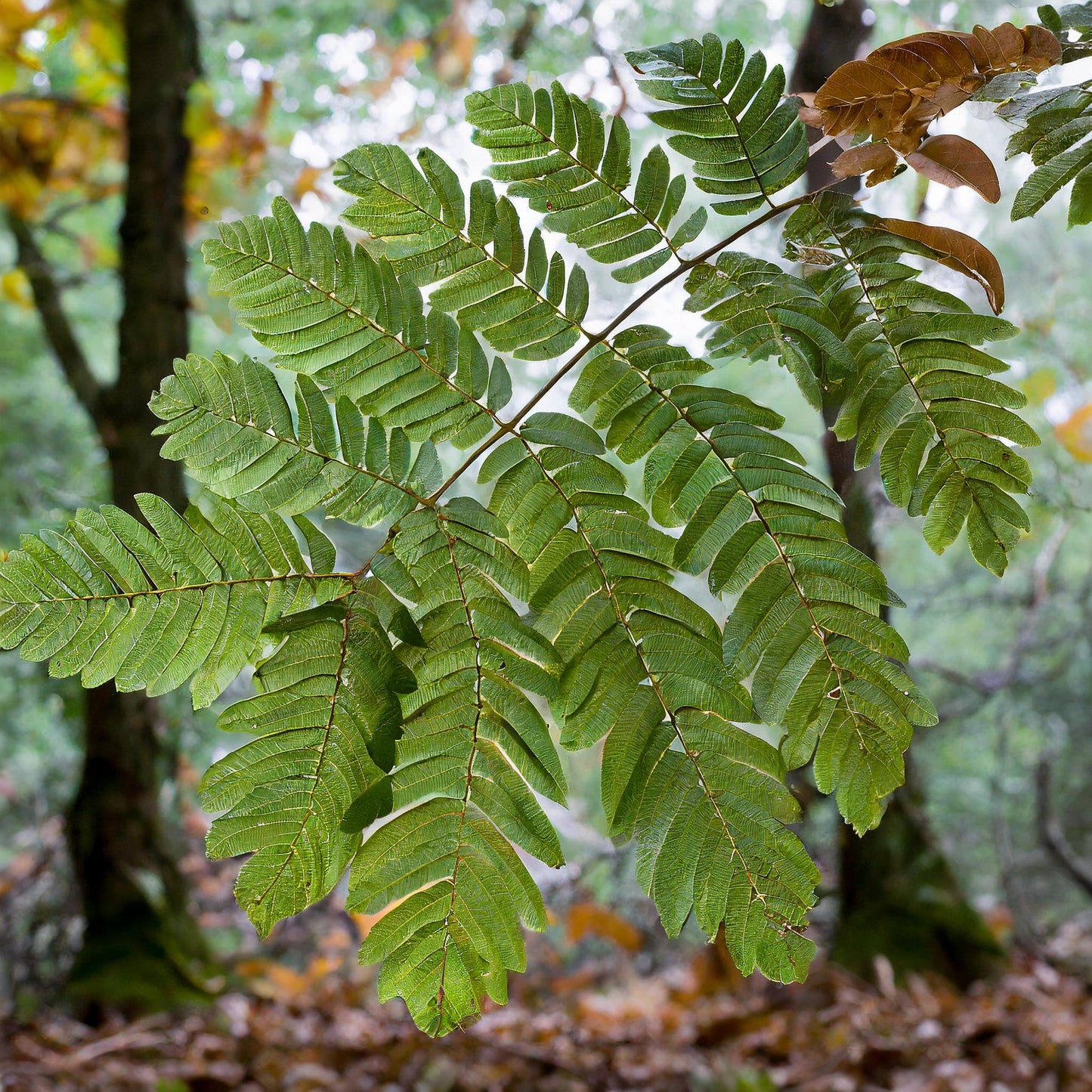Botanical Sage
Black Walnut Leaves C/S
Black Walnut Leaves C/S
Couldn't load pickup availability
Black walnut (Juglans nigra) leaves, like other parts of the black walnut tree, have been used for various medicinal purposes in traditional herbal medicine. Here are some potential medicinal uses associated with black walnut leaves:
-
Anti-parasitic Properties: Black walnut leaves contain compounds such as juglone and tannins, which are believed to have anthelmintic properties, meaning they can help expel intestinal parasites like tapeworms and pinworms. Infusions or extracts of black walnut leaves may be used internally for this purpose.
-
Anti-inflammatory Effects: Compounds found in black walnut leaves, including juglone, exhibit anti-inflammatory properties. As a result, preparations made from black walnut leaves may help reduce inflammation associated with conditions such as arthritis, gout, and inflammatory bowel diseases.
-
Oral Health: Black walnut leaf extract is sometimes used in oral care products for its potential antimicrobial properties. It may help combat bacteria that contribute to tooth decay, gum disease, and bad breath.
-
Skin Conditions: Black walnut leaf extract is used topically to treat various skin conditions, including eczema, psoriasis, acne, and fungal infections. Its antimicrobial and anti-inflammatory properties may help reduce inflammation and prevent bacterial or fungal growth on the skin.
-
Wound Healing: Black walnut leaf extract has astringent properties, which may help tighten and tone the skin. It may be applied topically to minor wounds, cuts, and abrasions to promote healing and prevent infection.
-
Digestive Health: Black walnut leaves are sometimes used to promote digestive health by relieving symptoms such as bloating, gas, and indigestion. They may also help soothe gastrointestinal inflammation and irritation.
-
Diuretic Effects: Black walnut leaves have diuretic properties, meaning they can increase urine production and promote the elimination of excess fluid and waste from the body. They may be used to support kidney function and reduce water retention.
-
Antioxidant Activity: Black walnut leaves contain antioxidants, including phenolic compounds and vitamin C, which help neutralize free radicals and protect cells from oxidative damage. Antioxidants play a role in supporting overall health and may help prevent chronic diseases.
While black walnut leaves have potential medicinal benefits, it's essential to use them cautiously and under the guidance of a healthcare professional, especially when using concentrated forms like extracts or supplements. As with any herbal remedy, individual responses may vary, and allergic reactions are possible.


